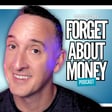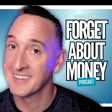
🤦♀️ "Die With Zero": Millionaires Only, Please! 🤷♂️
⚠️ In this episode, we break down Die With Zero by Bill Perkins, exploring its bold advice to spend rather than save. Is it a life-changing philosophy or a steamroom chat among the elite? We critique its core concepts, discuss why it might harm the average person’s finances, and suggest practical alternatives for living a meaningful life.
Watch and Subscribe on YouTube
💎 Whether you’re curious about memory dividends, time bucketing, or how Die With Zero contrasts with financial independence principles, this episode offers an honest, fun, and critical analysis.
In this episode, we discuss:
1️⃣ What is Die With Zero? Exploring the premise of spending for experiences over saving and the concept of memory dividends.
2️⃣ Time Bucketing and Peak Health: How to align life experiences with physical and financial milestones.
3️⃣ Who Die With Zero is For: Why it resonates with millionaires but may miss the mark for others.
4️⃣ Critiques and Alternatives: The pitfalls of its spending advice and practical strategies for financial independence.
🔗 Carla’s Links:
🎙️ Guy Lombardo -- Enjoy Yourself, It's Later Than You Think
🔗 David’s Links:
🏖️ The Fun Bucket Strategy: How to Spend Money in Retirement! | Mark Trautman & Kevin Sebesta
📘 Die With Zero: Nope, because it isn’t worth your money (unless you are a millionaire). If you must, go to a library or just listen to podcasts and blogs about it.
🍏 Forget About Money on Apple Podcasts
🎧 Forget About Money on Spotify
#financialindependence #personalfinance #bookreview #diewithzero #billperkins
🎧 Listen & Subscribe: Dive into more episodes where we explore financial independence, frugality, and living meaningfully. Hit subscribe and tap the bell 🔔 to stay updated!
📜 Disclaimer: This podcast is for entertainment and informational purposes only and is not financial advice. Always consult a qualified financial advisor before making significant financial decisions.

